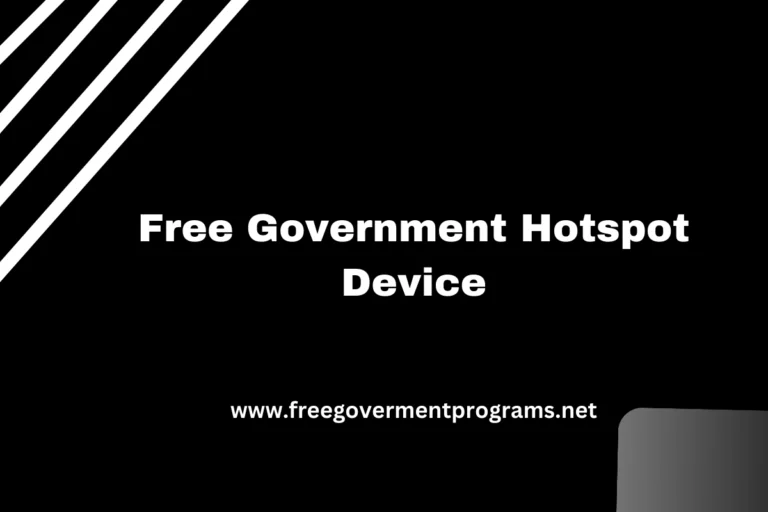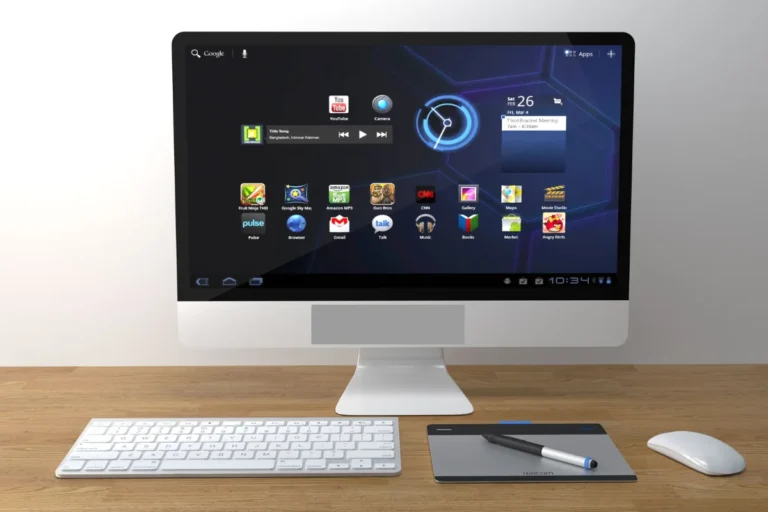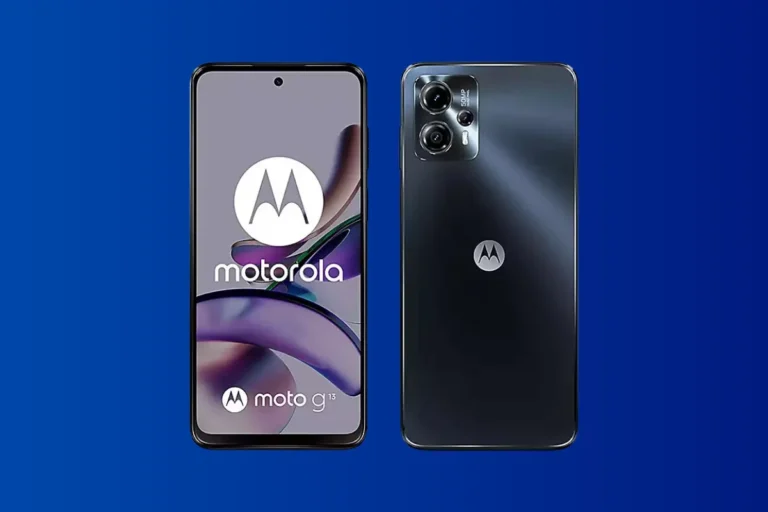Free Money For Stroke Victims – Claim Your Financial Support
Having a stroke doesn’t just make you feel unwell. It can also cause problems with your money. If you’ve had a stroke, you might have to pay a lot of money for medical care. Likely, your stroke has also made it hard for you to do your job and make money. It can make it challenging to pay your bills and care for your everyday needs. But there’s good news, there is support available. You might qualify for help from different government programs. This article will explore the various ways to provide free money to stroke victims.
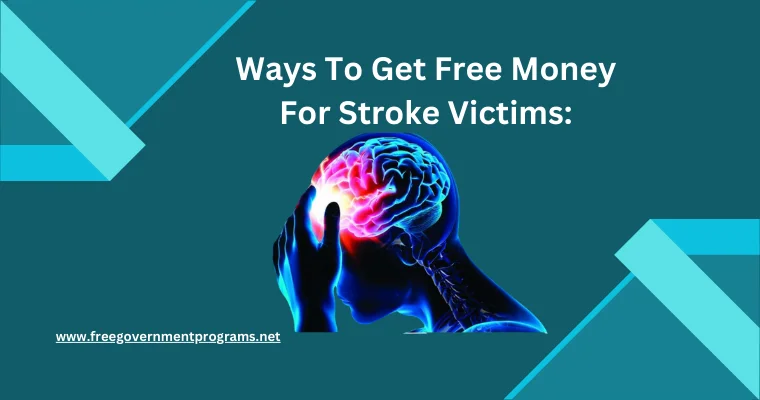
Ways To Get Free Money For Stroke Victims:
1. Social Security Disability Benefits
Social Security Disability Insurance (SSDI) is a type of help from the Social Security Administration (SSA). It’s for people who used to work and paid money into the Social Security system. If you can’t work anymore because of a stroke but earned enough “work credits,” you might be able to get SSDI.
However, you also need to show that your health problem fits the SSA’s idea of a disability. It might mean collecting proof, like medical papers, and talking with your doctors.
Get Help With Your Social Security Disability Claim:
It’s good to know that there’s help available if you can’t work after a stroke. But, if you’re trying to get Social Security benefits, it’s essential to know that it can be hard actually to get them. Most of the time, the Social Security Administration (SSA) says no to the first requests for benefits. You might have to ask again and show more proof of your disability to prove you should get the benefits.
The good news is that you don’t have to do this alone. You have a better chance of getting the SSA to say yes if you get help from a lawyer. You can start by talking to a lawyer for free through the Free Case Evaluation on the website.
2. Medicare & Medicaid
The government has a Medicare program that gives health insurance to people 65 or older. But, if you’re under 65 and have a disability, you might also qualify for Medicare. However, if you’re eligible for SSDI, another kind of government help, you can usually get Medicare, too. But, you have to wait for 24 months after you become eligible for SSDI before you can start getting help from Medicare.
Medicaid is a program from both the federal government and each state. It helps people and families with low incomes get health coverage. If you’ve had a stroke, you might be able to get Medicaid. However, the rules for who can get it can be different in each state. A lawyer can help you determine if you meet your state’s requirements.
3. State Disability Benefits
Lots of states have programs to help people with disabilities. In California, if you have a stroke that makes it hard for you to work for a short time, you might be able to get temporary money help called State Disability Insurance (SDI). In New York, there’s a program that gives benefits to disabled people with limited money.
Some state programs don’t just give money. They also offer other kinds of help. For example, they might provide training to help someone with a stroke get ready to return to work.
4. Supplemental Security Income (SSI)
Supplemental Security Income (SSI) is a government program meant to help people who don’t have a lot of money. It’s managed by the Social Security Administration (SSA), just like Social Security Disability Insurance (SSDI). But, the rules to qualify for SSI differ from those for SSDI. SSI is an important program that offers financial help to eligible American citizens and lawful residents.
It helps them pay for their daily expenses. To qualify for SSI, you need to have limited income and resources. You must also meet a minimum age requirement or show a disability, like blindness.
5. SSI – Qualifying Requirements
If you are at least 65 and have little money, you could get help from SSI. Even if you are younger than 65, you could still qualify for financial assistance through SSI if you can prove you have a disability, like blindness. For those with vision problems, you need to show that the vision in your better eye is not better than 20/200 or that the range your eye can see is not more than 20 degrees. If you have a different disability, you need to meet the medical guidelines set by the SSA.
The big difference between SSI and SSDI is that to qualify for SSI, you need to show that you need financial help. SSDI, on the other hand, looks at how much you worked and money you made. To get SSI, you must have less than $2,000 in total value of all your stuff. But don’t worry; they don’t count your car and home when adding up your things.
If you’re under 65 years old, you have to prove that you’re disabled to qualify for SSI. If you’re blind, it’s pretty straightforward. For other disabilities, you must show that you fit the SSA’s definition of long-term disability. To do that, you must meet these standards:
- You can’t do any work you’ve done before.
- Training or adjustment is only possible for job openings in your region.
- Have a disability that’s likely to last more than a year or result in your death.
If you qualify for SSI based on your disability, you’ll have regular check-ups. The SSA will check if your disability has gotten better. They’ll look at reports from your doctor (and sometimes their experts). If they think you’ve improved enough to do substantial work, you might not get ongoing Social Security Disability benefits.
How Do I Prove a Disability?
The SSA has a book called the Blue Book that tells you which medical conditions can qualify you for SSI benefits. To get SSI, you not only need to have an illness or injury from the Blue Book but also need to show that your symptoms are severe enough. In the Blue Book, you can find information about the symptoms of cancer, including radiation and chemotherapy.
What Are The Resident Rules?
The easiest way to get SSI help is by proving that you are a citizen of the United States. You can use documents like a driver’s license and a Social Security card as proof. If you are a lawful resident of the United States, you may also qualify for SSI. To be considered a lawful resident, you can’t be outside the United States for 30 days in a row and shouldn’t be getting any other financial help from the federal government. You must also live in one of the 50 states, the District of Columbia, or the Northern Mariana Islands.
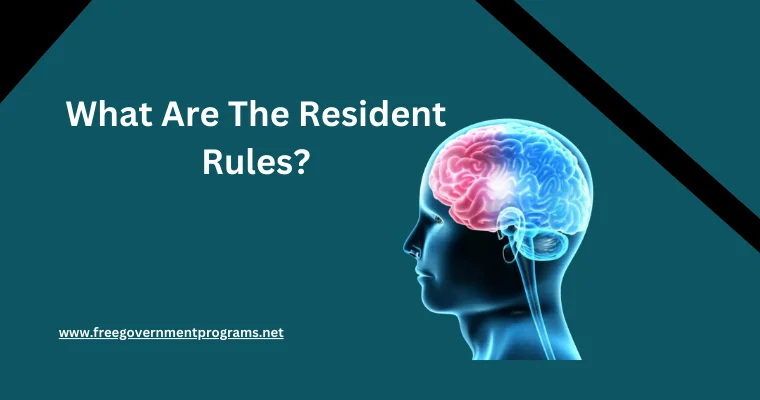
SSI – How To Apply
Knowing how to qualify for SSI is one thing, but applying for financial help through the SSI program is another challenge. First, you must meet the deadline set by the SSA for filing a claim. A Social Security lawyer can help you submit the required paperwork on time to get SSI financial assistance. Before you apply for SSI, gather your medical records to prove your disability, like blindness. Including records of any diagnostic tests with your SSI application is crucial. You can apply for SSI benefits online, over the phone, or in person at your local Social Security office.
If you choose not to apply in person, you can submit a claim online or schedule a phone appointment by calling 800-772-1213. You can have a lawyer or another representative for all stages of the application and appeals process. The majority of claims are initially denied but do not give up. You must demonstrate disability and financial need (as determined by the SSA) during appeals.
SSI – How To Appeal a Denial
You can appeal your determination of SSI benefits through several stages:
- Request for Reconsideration:
You can send in any new evidence to prove you should get SSI benefits. Doing this quickly is essential because asking for reconsideration means asking the SSA to look again at the evidence.
- Disability Hearing:
If your claim remains denied after reconsideration, you may request a hearing. You can talk directly to an Administrative Law Judge (ALJ) who will decide on your disability claim. For many people applying for SSI or SSDI, this hearing is their best chance to have their claims approved.
- Appeals Council Review:
As part of the review process, Appeals Councils thoroughly review ALJ decisions. If they disagree with the ALJ, they can change the decision or send it back to the ALJ for another look.
- Federal Court Review:
If the Appeals Council agrees with the ALJ, and you still think the decision is wrong, the only way to keep trying is to take your claim to the Federal Court system. But this is rare because the chances of winning at this stage are low.
Hire a Social Security Disability Attorney:
Many people applying for disability find it helpful to have a Social Security Disability attorney. A lawyer can guide you on what type of Social Security benefits you might qualify for. Studies have shown that your chances of getting approved for benefits are higher when you have a qualified legal representative.
Conclusion
Experiencing a stroke not only affects your health but can also lead to financial challenges. Medical expenses and the impact on your ability to work may create difficulties in managing daily needs and bills. Fortunately, there are support options available, mainly through various government programs.
This article has explored ways stroke victims can access financial assistance, focusing on programs such as Social Security Disability Insurance (SSDI), Supplemental Security Income (SSI), Medicare, Medicaid, and state-specific benefits. However, it is necessary to understand the eligibility criteria and the application process for these programs to get help from them.
Frequently Asked Questions (FAQs)
Is there financial assistance available for individuals who have suffered a stroke in the USA?
Yes, there are various financial assistance programs in the USA to support individuals who have experienced a stroke.
What government programs can provide financial aid to stroke victims?
Social Security Disability Insurance (SSDI), Supplemental Security Income (SSI), Medicare, Medicaid, and state-specific disability benefits may offer financial assistance.
How do I qualify for Social Security Disability Insurance (SSDI) after a stroke?
To qualify for SSDI, you typically need a work history, earn sufficient “work credits,” and demonstrate that your stroke meets the Social Security Administration’s (SSA) definition of a disability.
Can I get Medicare if I’m under 65 and have a disability due to a stroke?
Yes, if you qualify for SSDI, you may also be eligible for Medicare, but there is usually a waiting period of 24 months from your SSDI eligibility.
What is Supplemental Security Income (SSI), and how do I qualify?
A government program known as Supplemental Security Income (SSI) provides financial assistance to individuals with low incomes and limited resources. To qualify, you must have a low income, limited resources, and meet age or disability requirements.
Are there state-specific programs for stroke victims in the USA?
States such as California offer short-term financial assistance to individuals temporarily disabled as a result of a stroke through programs like State Disability Insurance (SDI).
